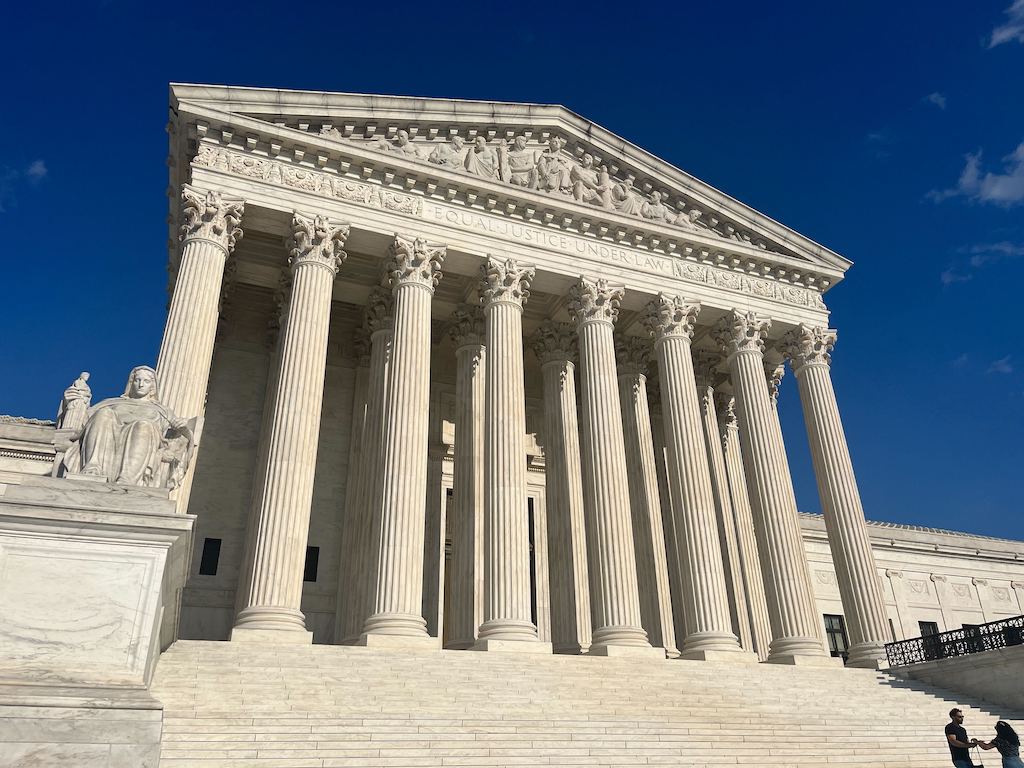WASHINGTON — The Supreme Court heard arguments Monday in two cases which may determine the fate of affirmative action in American higher education.
Harvard University and the University of North Carolina (UNC) defended their use of race as a factor in determining college admissions, in separate cases heard by the justices. Lower courts have previously ruled in favor of both Harvard and UNC.
Students for Fair Admissions (SFFA), a group created by conservative activist Edward Blum, is bringing both cases before the court. SFFA argued that considering race in college admissions violates the Equal Protection Clause of the 14th Amendment and Title VI of the Civil Rights Act of 1964.
In both cases, SFFA is seeking to overturn the court’s earlier ruling in Grutter v. Bollinger in 2003, which upheld the right of schools to consider race in their admissions processes with the goal of creating more diverse student bodies. The Grutter ruling also encouraged schools to pursue race-neutral admissions tests.
The universities argued that race is never a deciding factor in admission, but is a component in a holistic admissions profile, which takes into account diversity factors such as socioeconomic background, geography and language, among other things.
Justice Sonia Sotomayor agreed and questioned how it was possible for the plaintiff to argue race was a deciding factor when it was always considered along with other factors.
SFFA attorney Patrick Strawbridge argued that the use of race as a criteria for admission was unconstitutional and disadvantaged groups like whites and Asian Americans.
The majority opinion in Grutter v. Bollinger, authored by then-Justice Sandra Day O’Connor, included the line, “We expect that 25 years from now, the use of racial preferences will no longer be necessary to further the interest approved today.”
The justices, especially Justice Brett Kavanaugh, questioned the attorneys on whether this figure was to be taken literally and if the use of race would not end 25 years from Grutter, then when would it?
Early in the arguments, Justice Ketanji Brown Jackson took aim at SFFA’s standing in the case, questioning what injury members of that group suffered by UNC’s race-conscious admissions system.
The court’s conservative justices seemed inclined to accept SFFA’s argument that race was not a necessary criteria for increasing diversity on college campuses and that more could be shown through an applicant’s personal essay, which could reveal elements of a personal struggle in the face of discrimination or cultural differences.
Justice Elena Kagan slapped back at a hypothetical posed by Justice Samuel Alito about an African student who had moved to rural North Carolina and faced no discrimination but instead cultural differences, saying: “The race is part of the culture and the culture is part of the race, isn’t it? That’s slicing the baloney awfully thin.”
In its brief, Harvard noted that 41.5% of universities and 60% of selective universities (those admitting fewer than 40% of applicants) used race as a factor in admissions with the goal of creating more diverse student bodies.
The challenges to affirmative actions come on the heels of arguments in a redistricting case out of Alabama, in which the plaintiffs also urged the court to adopt a race-blind application of the Constitution.
Many analysts see the court’s conservative supermajority as likely to overturn the precedent established in Grutter v. Bollinger.
Over 90 amicus briefs were filed ahead of the arguments, with 60 of those backing the universities and 33 supporting Students for Fair Admissions. Groups supporting Harvard and UNC included the Biden administration, the College Board, ACT Inc., and the NAACP Legal Defense Fund.
U.S. Solicitor General Elizabeth B. Prelogar also argued on the side of the universities. The Justice Department contended that removing race as an admissions factor would ultimately have an adverse effect on national security as it would be detrimental to the quality of officers graduating from the service schools and nationwide R.O.T.C. programs.
The judicial theory of originalism made several appearances during oral arguments.
While typically associated with conservatism, the respondents argued that race-conscious policy making was part of the original intent of both the 14th Amendment and Title VI of the 1964 Civil Rights Act. Conservative Justice Amy Coney Barrett seemed to concede that an originalist reading of these texts would support the argument for affirmative action.
Other conservatives on the court weren’t as persuaded.
Justice Clarence Thomas seemed to repeatedly question the value of diversity in education writ large and cited his own experience as a student in elite institutions when they were much less diverse.
Jackson, who just recently joined the court, was a significant absence during the Harvard case’s arguments. She recused herself from the case due to her former position on Harvard University’s Board of Overseers.

